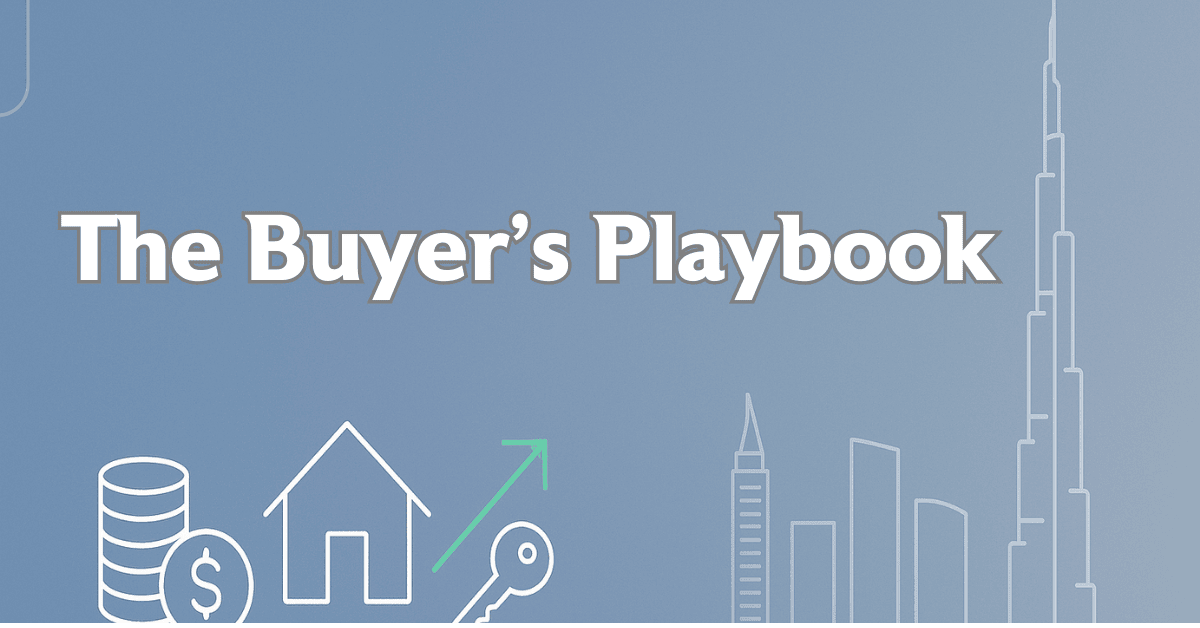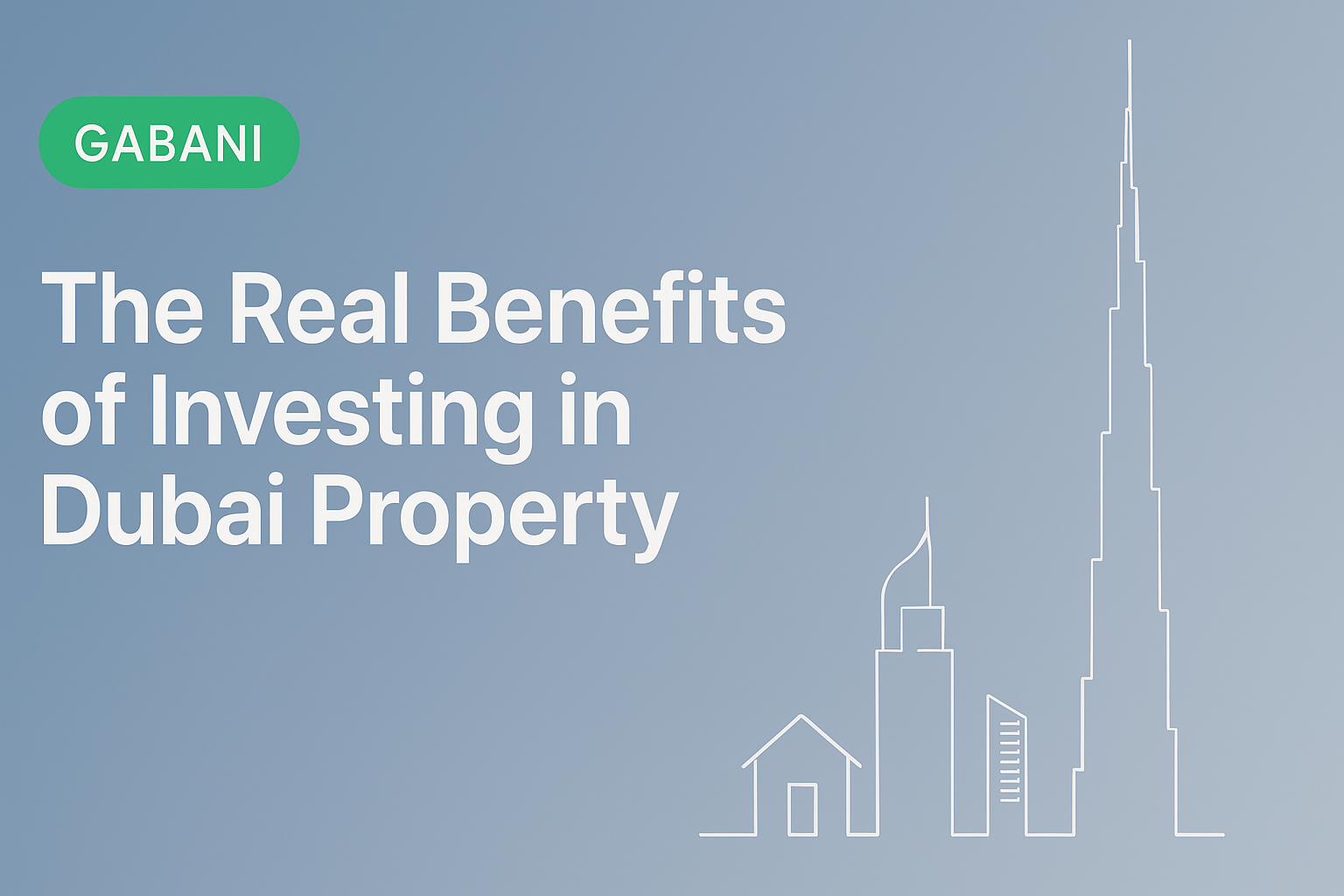Why Dubai Property Right Now
Dubai is a global hub with steady housing demand. People move here for jobs, safety, schools, healthcare, and lifestyle. This constant demand supports rental income and holds long-term value. Clear purchase steps, modern infrastructure, and strong connectivity makes the market easy to understand for both first-time buyers and experienced investors. This guide explains the real benefits and gives you a clear understanding to invest with confidence.
2) Key Takeaways
- Strong rental demand: Many communities attract professionals and families, which supports occupancy and potential high return on investment.
- Tax-friendly for residents: No tax on personal income or on rental income and neither on your property in Dubai.(confirm your own situation if you file elsewhere).
- Flexible entry on some projects: Off-plan properties do have various options for staged payment plans or limited-time incentives.
- High quality of life: Safe city, reliable services, top schools and hospitals, best health care, excellent infrastructure and roads in addition to swift public transport facilities such as metro and buses. In a nutshell better living, and higher returns on renting as well as property appreciation on resale.
- Clear buying process: Standard steps and documentation help reduce confusion and speed up transfers and make it hassle free.
- Portfolio diversification: Property in a global city can balance cash and stocks, adding a real asset to your investment portfolio.
Simple next steps: Set a goal, pick areas, run basic numbers, and follow a checklist to close smoothly.
The Real Benefits
Rental income potential
Dubai attracts professionals and families all year. This supports steady occupancy. Furnished homes can rent faster in some locations. Short-term rentals may earn more in peak periods but need active management. Long-term leases are simpler and more predictable.
Tax-friendly setup
Dubai does not levy personal income tax on salary or rental income. This can improve net returns. If you file taxes in another country, confirm your own obligations there.
Developer payment plans and incentives
Many off-plan projects offer staged payments and, at times, fee waivers or post-handover plans. These reduce the entry burden. Read the schedule carefully and keep a small contingency.
Quality of life and connectivity
The city is safe and well connected by roads, metro, and airports. Schools, healthcare, and public services are strong. These factors help end-users and support rental demand, which can aid long-term value.
Portfolio diversification
Property is a tangible asset. Owning in a global market like Dubai can balance a portfolio that is heavy in cash or equities and add currency diversification.
What to Buy for Your Goal
Use this quick matchmaking table to align your goal with a property type. Verify with real listings before deciding.
| Your goal | Ready apartment | Ready townhouse | Off-plan apartment | Off-plan villa |
| Steady rent | Good fit | Good fit | Okay | Okay |
| Long-term home | Good fit | Strong fit | Okay | Strong fit |
| Lower entry cost | Okay | Okay | Good fit | Okay |
| Legacy and space | Okay | Strong fit | Okay | Strong fit |
| Faster move-in | Strong fit | Strong fit | Not ideal | Not ideal |
| Custom finishes | Okay | Okay | Good fit | Good fit |
Notes:
- Building age, maintenance history, and exact location can change results.
- Furnishing, view, and floor level affect rent and resale.
- Mortgage policies can vary by property type, developer, and remaining construction risk.
Off-Plan vs Ready
Price
Off-plan usually starts at a lower entry point. Ready homes often require more cash today but you can live in them or rent them out immediately.
Time
Off-plan needs patience until handover. Ready is faster because the unit already exists.
Risk
Off-plan carries construction and delivery risk. Ready lets you inspect the exact unit and the building condition before buying.
Financing
Banks may set different rules for each path. Ask lenders early about eligibility, documents, and timelines for the specific project or building.
Resale
Ready homes can be simpler to resell in many markets. Off-plan resale depends on the project stage and the developer’s transfer rules.
Costs and Fees Snapshot
Upfront costs
Purchase price
Transfer or registration fee
Agency commission if an agent is involved
Valuation fee if you are taking a mortgage
Ongoing costs
Service charges for the building or community
Maintenance and minor repairs
Home insurance and utility bills
One-time extras
Snagging and small fixes after handover
Furniture and appliances if you plan to rent
Moving, connection, and setup fees
Simple planning tips
Ask for the latest service charge figure before you make an offer.
Keep a cash buffer for one empty month and a small repair.
Save digital copies of every receipt, NOC, and the title deed for easy reference.
The Buyer’s Playbook

- Define your goal
Decide if you want rental income, a home for your family, or a long hold for legacy. - Set your budget
Choose cash or mortgage. Include fees, service charges, furniture, and a small buffer. - Shortlist three areas
Check commute time, schools, parks, shops, and hospitals. - Select property types
Pick two or three options that match your goal, such as a ready apartment or an off-plan townhouse. - View and check
Visit at different times of day. Test AC, water pressure, elevator wait time, parking access, and lobby condition. - Run the numbers
Estimate rent, subtract service charges and typical costs, and allow for one empty month. - Choose your ownership model
If you need clarity, read Leasehold vs Freehold inDubai: Which Ownership Model Fits You? and apply it to your shortlists. - Make an offer and sign the MOU
Put terms in writing, list included items, and set clear dates. - Valuation and mortgage
Share documents early and track the bank’s and developer’s timelines. - NOC and transfer
Obtain the developer NOC, complete payments, collect the title deed, and set up utilities.
Risk Control
Market timing
Buy for your own goal and holding period rather than chasing headlines.
Building quality
Review developer reputation, building age, service records, and recent maintenance.
Cash flow safety
Stress test with a vacancy month and a small repair fund so payments remain comfortable.
Legal and documents
Read title or lease terms, community rules, handover reports, and any restrictions on resale or leasing.
Financing fit
Confirm lender policies for the exact project or building before you commit.
Exit options
Think about resale demand in the area, typical time on market, and whether furnishing will help liquidity.
Mini ROI Check
Use this structure when you compare properties in Dubai. Adjust the figures to your case and confirm current fees before buying.
1) Annual cash flow
Income
• Annual rent: AED 120,000
Typical yearly costs paid by the landlord
• Service charges: AED 18,000
• Property management fee (example 7% of rent): AED 8,400
• Maintenance reserve: AED 3,000
• Vacancy reserve (one month of rent): AED 10,000
• Chiller or other landlord-paid utilities if applicable: AED 0 in this example
Net income
• AED 120,000 − 18,000 − 8,400 − 3,000 − 10,000 = AED 80,600
2) Total invested
Upfront purchase and setup
• Purchase price: AED 1,000,000
• Dubai Land Department transfer fee (illustrative 4%): AED 40,000
• Agent commission (illustrative 2%): AED 20,000
• Trustee and title issuance fees: AED 5,000
• Basic furnishing and appliances: AED 25,000
Total invested
• 1,000,000 + 40,000 + 20,000 + 5,000 + 25,000 = AED 1,090,000
3) Simple yield
• Net income ÷ Total invested
• 80,600 ÷ 1,090,000 = 0.0739, or 7.39%
Notes for Dubai calculations
• Include DLD transfer fee, trustee office and title fees, and any agent commission in your total invested.
• If you use a mortgage, add the bank arrangement fee, valuation fee, and mortgage registration to total invested, and replace the vacancy reserve with your actual interest and principal impact in cash flow.
• Service charges vary by building and size. Always request the latest figure in writing.
• Chiller can be landlord or tenant paid depending on the building. Confirm this before you model rent.
• Compare at least three similar listings in the same community and same building age before deciding.
FAQs
What are the main benefits of investing in Dubai property
Strong rental demand, no personal income tax, modern infrastructure, and a clear buying process.
Can expats buy property in Dubai
Yes, in designated areas. Both leasehold and freehold options are available.
Is Dubai good for rental income
Many communities show steady occupancy. Returns depend on location, building quality, and finish.
Should I choose off plan or ready
Choose ready if you need to live in it or rent it soon. Choose off plan if you prefer a lower entry price and can wait for handover.
How much are service charges each year
They vary by building and community. Always ask for the latest fee before making an offer.
Do I need a large down payment
Expect a meaningful down payment. Keep a cash buffer for fees, furniture, and one empty month.
How long does transfer usually take
Timelines vary by lender, developer, and documents. Plan for a few weeks and follow up often.
For help choosing an ownership model, see Leasehold vs Freehold in Dubai: Which Ownership Model Fits You and match it to your budget and time horizon.
Make Your Move, With Confidence
Match your goal to the right area and property type. Run a quick cash flow to see if the numbers work. Follow a clear buying checklist so the transfer is smooth. If you want support with shortlisting, price checks, or documents, talk to Gabani Developers. Our team helps UAE buyers with verified options and a step by step plan from viewing to title deed.
Ready to start your shortlist Contact Gabani Developers for guidance and a viewing plan that fits your budget and timeline.


 WhatsApp
WhatsApp
 Call Back
Call Back
Join The Discussion